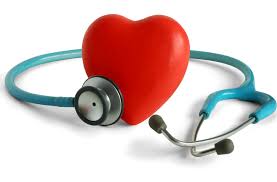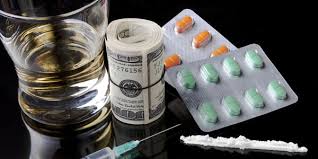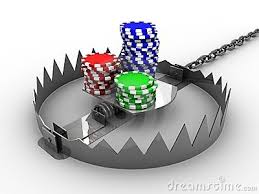Rehab Articles

medical treatment model for drug and alcohol abuse, substance abuse
The medical treatment model for drug and alcohol abuse has some pros and cons both, and this model is followed by some substance abuse professionals but not others. There is concern that this model does not stress any personal responsibility though, and that individuals may view their substance abuse as a disease that they have no control over. There is some evidence that addiction causes physical changes in the body, and there are some medical treatments which may help the user overcome the physical cravings. The invisible wounds in the psyche and the spirit also need to be addressed for a permanent recovery that is complete, and this requires individual counseling and intensive therapy. The most effective approach for substance abuse and addiction is to combine medical and spiritual methods to treat the whole person.
The biggest drawback to the medical treatment model for drug and alcohol abuse is the lack of accountability and responsibility. Substance abuse is a medical problem, but the treatment requires more than just medications and physical therapies. When substance abuse occurs along with mental illness then the treatment difficulties can become even more complex. The most effective solution for substance abuse is to address all of the contributing factors, including physical, mental, and spiritual issues that lead to substance abuse. Statistics show that Christian rehabs may offer a better chance at a permanent recovery, but only if the program chosen offers individual counseling several times a week. Without this method a full recovery can not be reached even if the medical treatment model for drug and alcohol abuse is followed perfectly.
Rehab Articles

1. One of the earliest addiction recovery steps is to monitor and track your use of drugs and alcohol. Note when you drink or use drugs, how much you are using, and what you are feeling at the time.
2. Talk to loved ones and find out how your addiction affects them, and then ask for their support in your efforts to stop this destructive cycle.
3. Make a list of all the ways that your drug and alcohol abuse hurts you, and how these activities affect those around you. Include all of the pros and cons when it comes to quitting your addiction and getting the help that you need.
4. Speak with a professional substance abuse counselor to find out what addiction treatment options you have,
5. Think about positive ways that you can change your behavior and evaluate what stops you from making these changes.
6. One of the most important addiction recovery steps is examining your past attempts to stop. Write down what challenges you faced, and what techniques and methods worked best for you. This can be used as a blueprint for your latest attempts to stop your drug and alcohol abuse, and this step will give you a better chance at a full recovery.
7. Eliminate all drugs and alcohol from your home, workplace, and other places where you often use. If these are not readily available it may give you time to think about what you are doing and prevent you from a relapse.
Rehab Articles

Before you enter substance abuse treatment, or even start preparing for your substance abuse recovery, there are some important things that you need to think about and consider. Sobriety may seem like it is impossible when you first star thinking about getting help, and you may feel like a permanent recovery is not within your reach. You may feel like your situation is hopeless but the truth is that the right substance abuse treatment program and mindset can help you reach substance abuse recovery. Some tips that can help you succeed include:
-
Decide to change your life for the better, and then make small changes towards this goal.
-
Find a substance abuse treatment program that can address all of the root causes and contributing factors that have led to your drug or alcohol addiction.
-
Set a date to stop drinking or using drugs, and then mentally prepare yourself each day until your quit date arrives.
-
Remember that you may hit a few bumps in the road on your way to substance abuse recovery, and do not let relapses cause you to give up.
-
Tell friends and family members about your plan to enter substance abuse treatment, and ask for support from them. A strong support network is very important for permanent substance abuse recovery.
-
Start tracking your drug or alcohol use, and make every attempt to cut back before you start substance abuse treatment.
-
Talk with a substance abuse professional to find out exactly what your treatment options are.
Rehab Articles

1. Compulsive gambling tips that can be very helpful include making a date to quit. If you set a date in the near future then this gives you time to strengthen your resolve so that you have a better chance at recovery.
2. Look for better ways that you can spend your time and money instead of gambling. Make a list of the possibilities, so that you can look at it when your resolve weakens.
3. Add up all the money that your gambling addiction has cos you in the last year. Once you are face to face with the actual cost of your compulsive behavior you may be more motivated to seek help.
4. Do some research on compulsive gambling tips and on gambling addiction. This will help you understand your problem better and let you know that you are not alone. Many people suffer from this problem but there are ways that you can stop gambling once and for all.
5. Attend meetings for Gamblers Anonymous. These meetings can be an important source of support and you may find them helpful when you are in recovery or seeking treatment.
6. Give control of your money to someone that you trust. A friend or family member can manage your money so that you do not have the financial resources to gamble with. Make sure that you can trust the person completely though.
7. Seek a professional counselor who is knowledgeable and experienced in treating gambling addiction. This professional can provide help and also give you additional resources if these are needed.



